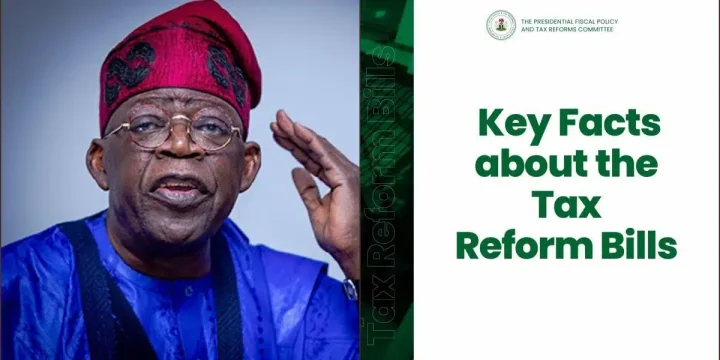
President Bola Ahmed Tinubu has signed four new finance bills into law to overhaul Nigeria's tax system, aiming to reduce burdens on ordinary citizens and businesses while making tax collection more efficient.
What changed?
The government introduced four key laws:
Nigeria Tax Act - Combines many overlapping taxes into one simple code, eliminating over 50 minor taxes.
Tax Administration Act - Sets unified rules for collecting taxes across all government levels.
Nigeria Revenue Service Act - Replaces the FIRS with a new, independent body: the Nigeria Revenue Service (NRS).
Joint Revenue Board Act - Coordinates tax efforts between federal, state, and local governments, and introduces a Tax Ombudsman and Tax Appeal Tribunal to settle disputes.
Who benefits?
Low-income earners:
Families:
Small businesses:
Large companies:
Charities and co-ops:
Who pays more?
High-income individuals and luxury buyers:
Expect higher VAT on luxury goods and a capital gains tax on large stock sales.
Why it matters
Nigeria's tax system has long been complex and inefficient, with too many taxes hurting low-income earners and discouraging business growth. With a very low tax-to-GDP ratio (just over 10%), Tinubu's administration hopes to raise it to 18% by 2026-without increasing taxes on basic goods.
The reforms aim to:
Make tax compliance easier
Reduce pressure on the poor
Raise funds for infrastructure, education, and healthcare
















Comments